Exploring UEF laboratories: High-tech and cross-disciplinary cooperation
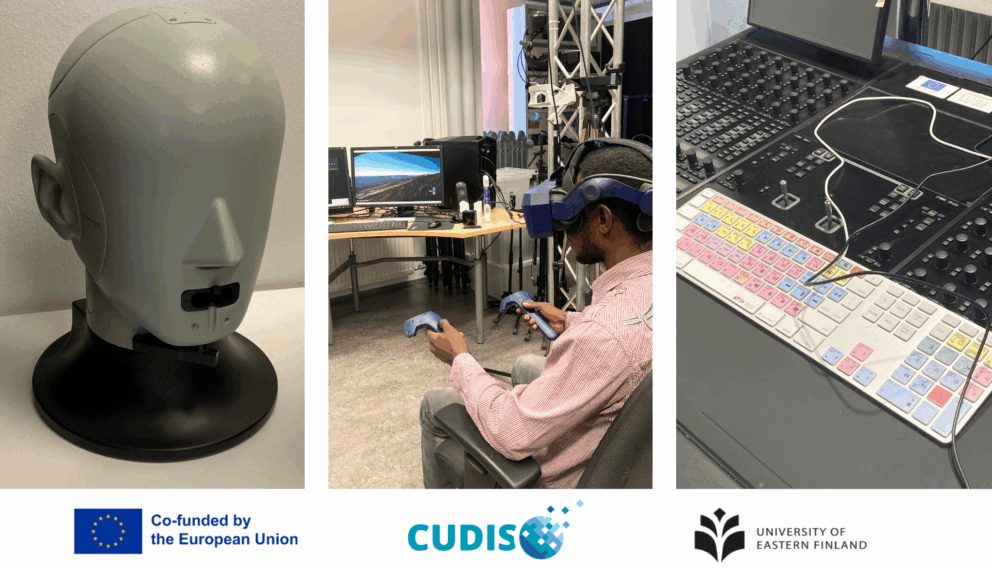
In the spring of 2025, the CUDIS project (ESF+) organised a tour around UEF’s laboratories for students. It was a great opportunity to explore the cutting-edge laboratories on both Joensuu and Kuopio campuses. We discovered how different disciplines come together in innovative ways and learned how these laboratories can support research, studies, and career connections.
In this post, we have compiled a list of the laboratories we visited. Read further to learn interesting facts about the laboratories, what they offer, and how to contact them.
HUMEA Lab
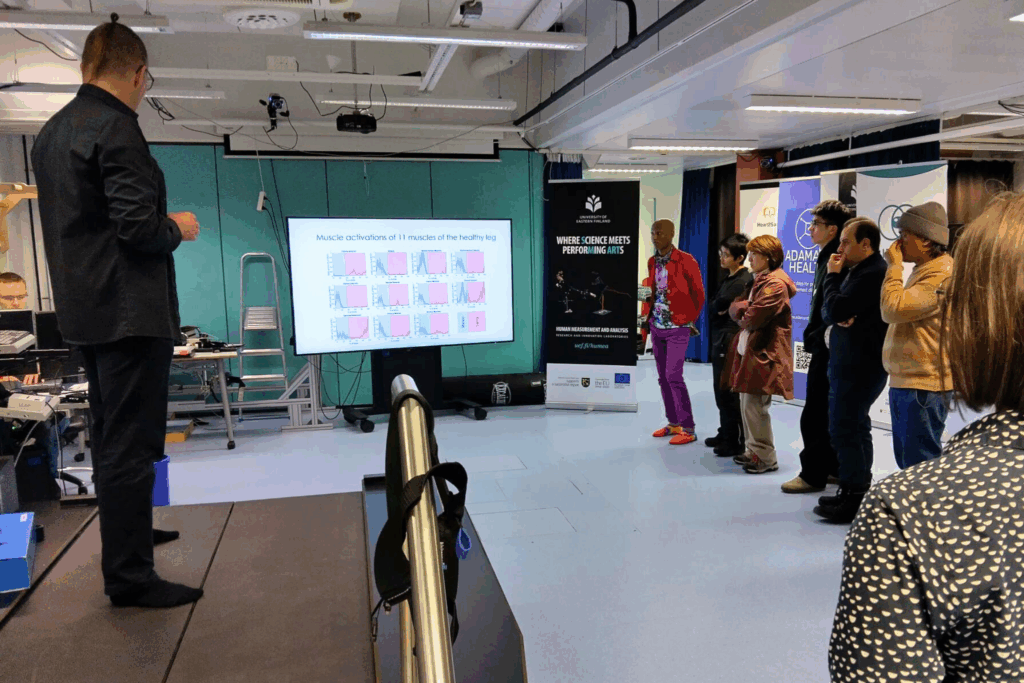
We kicked off the tour by visiting two laboratories on Kuopio campus: HUMEA Lab and SmartSleep Lab. They both operate at the Department of Technical Physics.
HUMEA Lab is a multidisciplinary research environment for human motion and biosignal measurement and analysis. For example, the laboratory uses eye movement tracking and virtual reality to study human-technology interaction.
The lab is open to thesis work and other forms of collaboration. It has also fostered the creation of companies and research-to-business projects, such as Heart2Save (2015) and TrueHear (2024).
If you have questions about the laboratory and its use, you can contact Professor Pasi Karjalainen (UEF).
SmartSleep Lab
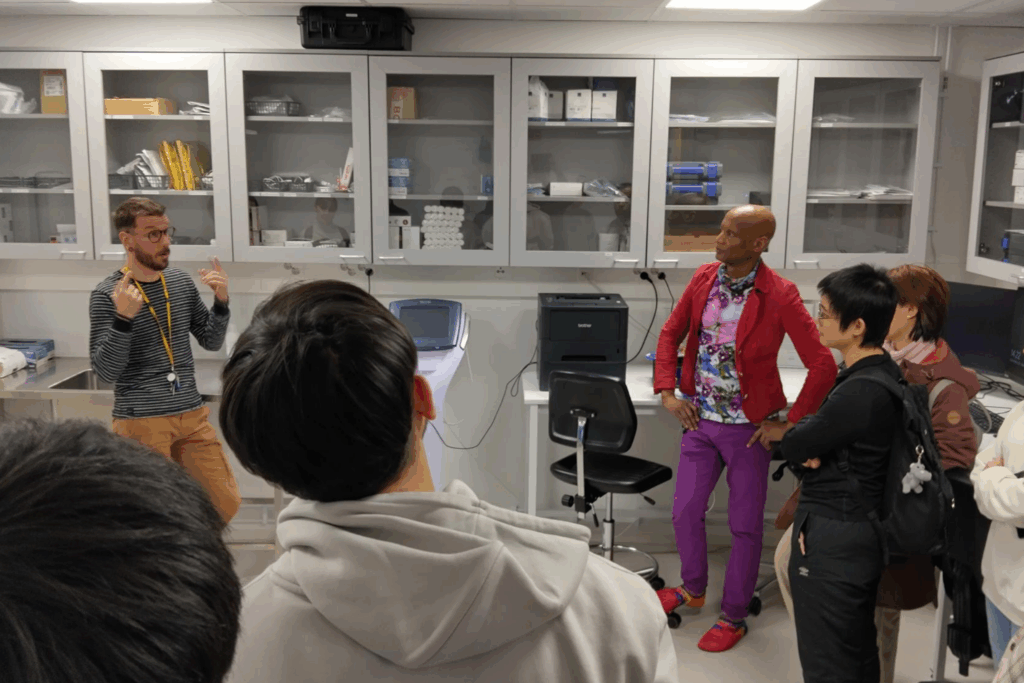
SmartSleep Lab is an RDI (research, development, innovation) and teaching environment for sleep research and next-generation medical devices, software and services. The laboratory was presented by Academy Research Fellow Samu Kainulainen.
The lab does not conduct clinical diagnosis studies, only research. Their research focuses on areas such as sleep apnea, sleep stages, and jet lag. They are also open to thesis work and other forms of collaboration. For more information, including contact details, you can visit the laboratory’s website.
SenseLab
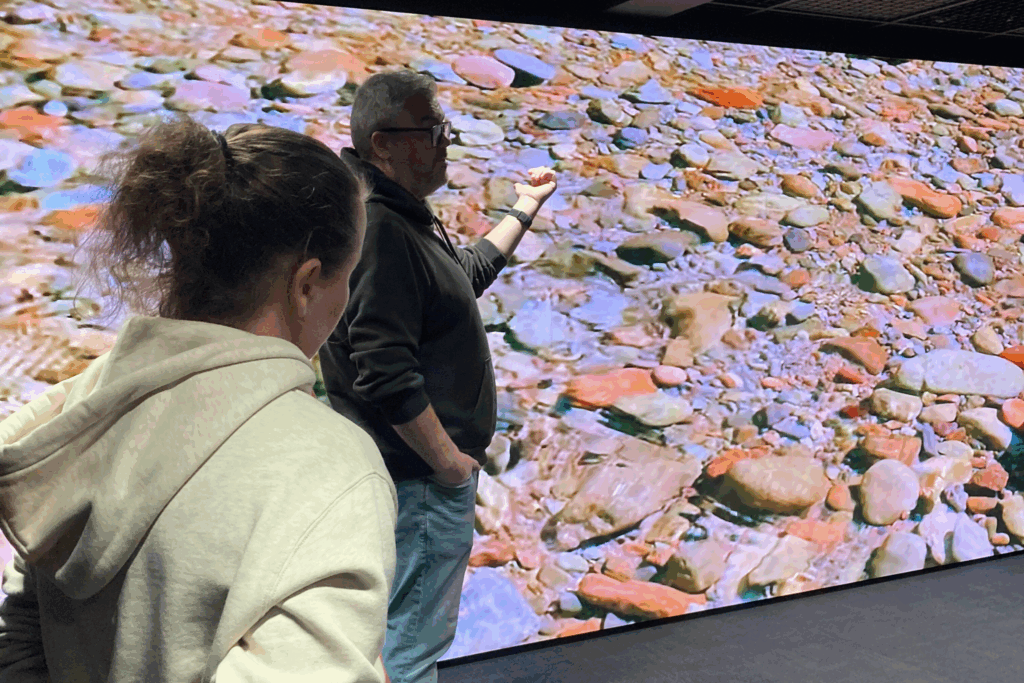
On the Joensuu Campus, we visited laboratories utilising various technologies, including virtual reality (VR), cameras, and audio solutions.
SenseLab, located in the Educa building, is a multisensory research environment. The laboratory mostly focuses on consumer research by experimenting with lights, scents, sounds, and even touch. The laboratory also utilises XR, VR, and audiovisual recording technologies.
Our hosts, Assistant Professor Heli Hallikainen and University Teacher Nino Ruusunen, took us to the laboratory’s immersive space. The room is equipped with a large screen, lights, sound system, cameras, and scent machines.
Examples of studies conducted in the laboratory include the perception of time while online shopping and the effects of scent marketing on green consumer choices. Although most research focuses on consumers, the lab values interdisciplinary collaboration and completely new ideas.
The lab is open to UEF faculty and students, e.g. for thesis work. For more information contact Heli Hallikainen (UEF) or Nino Ruusunen (UEF).
XR Lab
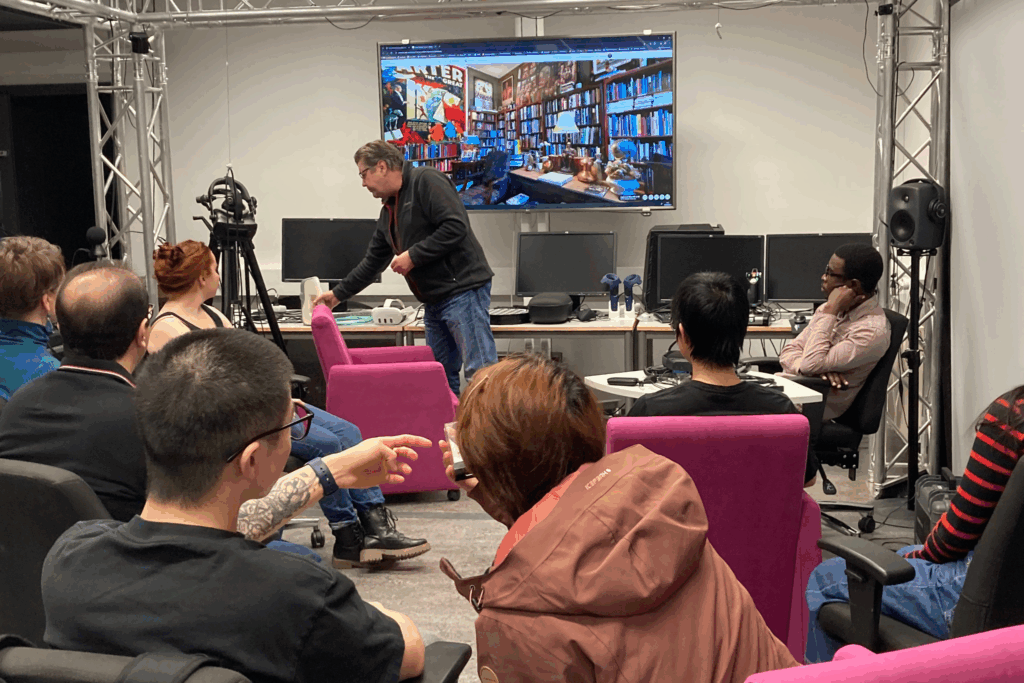
XR Lab is a laboratory specialising in virtual reality and digital visualizations. It has a wide range of virtual reality and augmented reality equipment, as well as various 3D scanning camera systems. The laboratory is in the Metria building.
During the visit the participants got to try out different AR/VR glasses to play games and explore in Google Earth. Our host, Project Coordinator Veikko Miettinen, also showed us a couple of 3D models and a VR avatar. The lab equipment includes screens, glasses (XR, VR, AR), motion caption cameras, 3D tools, and cameras for scanning objects.
XR Lab is open to students for research projects and thesis work. You can ask Veikko Miettinen (UEF) for more information.
LogoLab
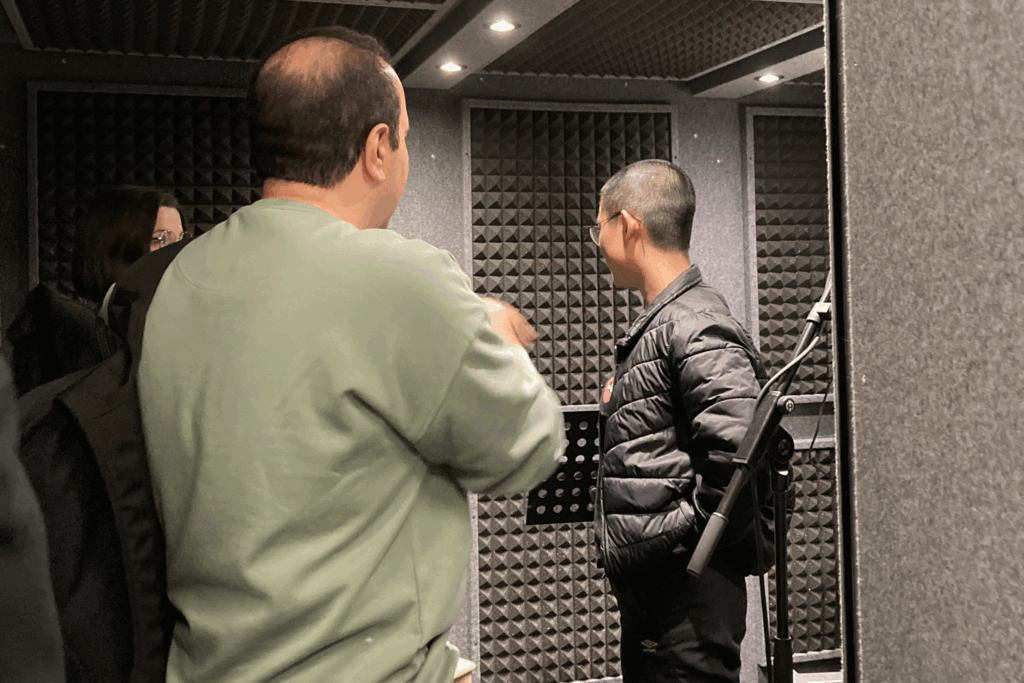
LogoLab is a multidisciplinary research environment for speech research. The research focuses on speech production and processing using different methods. You can find the laboratory in the Agora building.
The lab provides a wide range of research equipment, such as eye tracking systems, EEG systems (recording brain activity), and sound recording devices. For those who are curious, all the equipment is listed on their website.
The lab is regularly used by researchers. One example of research conducted in the laboratory is how to distinguish between real and fake accents. The lab is also open to students for thesis work. If you’re interested, you can contact Senior Laboratory Technician Petri Pulli (UEF).
Studio 360
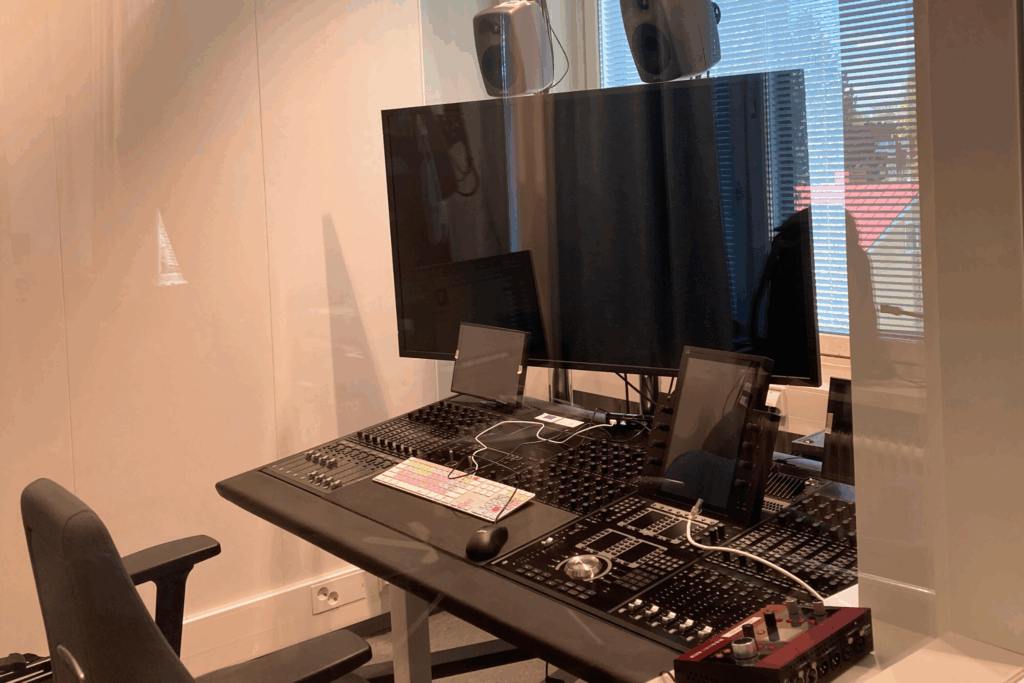
Studio 360 (soundscape studio) is a learning environment where inclusive and experimental digital learning materials and content can be produced, tested, and studied. The studio enables the exploration of virtual reality and 360 audio solutions.
The studio is equipped with professional loudspeakers, a large white screen, microphones, computers, and a mixing board. The software used is Pro Tools. The studio can be used, for example, to record music, podcasts or video interviews.
The studio was built as part of the Studio360 infrastructure project, which started in 2018. One of the project’s aims was to promote regional cooperation between the university, companies and educational institutions in the production of services and content based on virtual reality and 360 audio. Currently, the studio is open for teacher-led projects. It is primarily used for music education, music technology, and media studies.
For more information you can contact Director of Learning Environment Development Kari Korhonen (UEF).
Were you aware of the various high-tech laboratories on UEF campuses? This list includes only the ones we visited – there are many more to discover. The visits during spring 2025 were aimed at UEF students. In the upcoming autumn we will be laboratory visits for the representatives of companies and organisations operating in North Karelia.
Written by Project Secretary Oona Järvinen